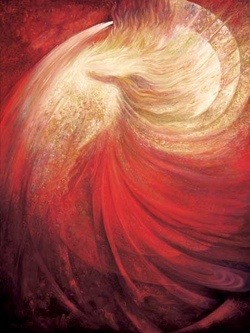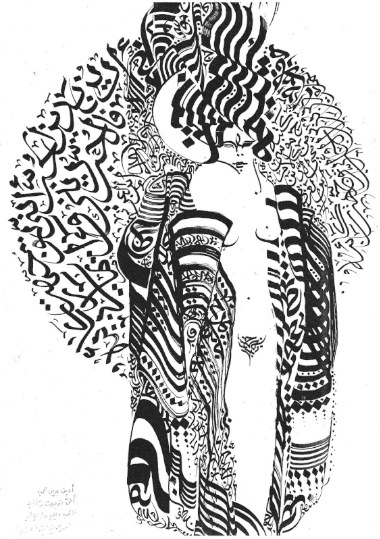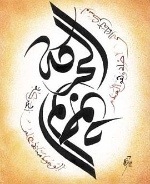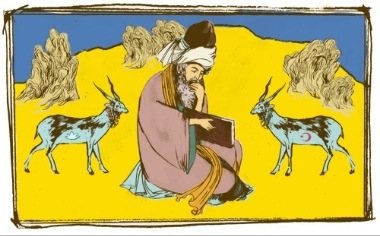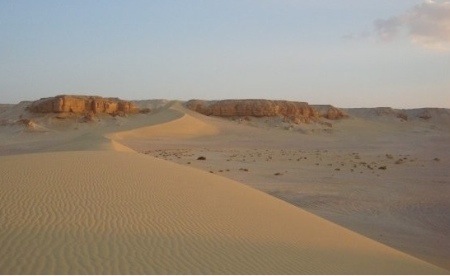قال محمود درويش
“الآن كنت، الآن سوف تكون، فأعرف من تكون، لكى تكون”
قال سمعان بطرس و قلتُ: “على كلمتك ألقىِ الشبكة”
قال الشيخ أحمد الرفاعى: “أى أخى، أنت غيرٌ، ونفسك غيرٌ، وغيرك غيرٌ. كُلُّ ما أدركه بصرك، واختلج بشكله وكيفيته سرُّك، فهو غيرٌ. ربُّنا لا تكيِّفه الأفكار، ولا تدركه الأبصار”
أنا النبى
الذى لا يؤمن بتمام نبوته
أنا الرسول
الذى لا يعرف غاية رسالته
أنا المؤمن
بدين الحب
أنا الكافر
بكل الأديان الآخرى
أنا السؤال،
من أنا؟
أنا الجواب،
هو أنا
أنا الحيوان
الذى، من الدخول و إلى الخروج، لا تنقضى حاجته
أنا الأنسان
الذى، من الشروق و إلى الغروب، لا تكتمل محبته
أنا الإله
الذى، من الأبد و إلى الأزل، لا يحتمل أنسانيته
أنا الظاهر
بين الحروف و الصور
أنا الخفىّ
خلف الحروف و الصور
أنا الموحّد
الهائم فى وحدة الوجود
وفى الفناء فى الموجود
أنا الملحّد
الحائر التائه فى بدعة السجود
و فى الرياء من أجل الخلود
أنا الحياة الدنيا
أنا الحياة الآخرى
أنا هاوية الجحيم
أنا فردوس النعيم
أنا النور
الذى يغلب الظلمة
أنا الظلمة
التى تغلب النور
أنا نور العالم و عالم النور
أنا سواد العدم و عدم السواد
أنا المكان، أنا الزمان
أنا الصلة بين المكان و الزمان
أنا عملية التغيير
بل أنا أمكانية التغيير
جئت هنا من هناك
لأذهب إلى حيث لا يوجد هنا و لا هناك
وصلت الساعة من زمن بعيد
لأذهب قريباً إلى حيث لا توجد ساعات و لا مواعيد
أنا حكاية التاريخ و غواية التأريخ
أنا لغز الغد
و ذراتى ذرات الوقت
أنا الماء و الهواء و التراب وشعلة النار
المادة
أنا خيط من نسيج الكون الذى لا يهدأ
أنا الفيض و الأهواء و الثبات و ثورة العشق
الروح
أنا كلمة من أصل الخلق الذى لا يصدأ
أنا اللقاء
و الشوق الذى لا يسكن باللقاء
و إن كان يفرح بالوعد
أنا الفراق
و الحنين إلى الغربة الذى لا يعرف معنى القرب
إلا فى البعد
أنا الفقير
إلى الله و إليها
أنا الغنى
بالروح و بها
أنا المعرفة
العارفة حدودها
أنا الجهل
الجاهل حدوده
أنا المسجون
فى سجن العقل المتعالى فوق الجنون،
العقل الذى لم يعرف يوماً سكون
أنا المجنون
أنا شجن العبث المتوارى خلف الفنون،
العبث الذى لم يعرف يوماً قانون
أنا الموجود
الذى يرى فى الرحيل إلى العدم انتصاراً
أنا المفقود
الذى لا يستطيع إلى الوجود انتظاراً
وهو و هى الوجود
سأبقى أنا أنا
وسيبقى هو هو
و هى هى
أنا غير
بل أنا الغير
أنا المتاهة، أنا الكنز، هى خريطة المتاهة و هو صاحب الكنز. أنا باب البيت، أنا مفتاح الباب، هى البيت و أهله و هو صاحب البيت.
“يا باب أيا مقفول .. إمتى الدخول؟
صبرت ياما واللى يصبر ينول
دقيت سنين .. و الرد يرجع لى: مين؟
لو كنت عارف مين أنا .. كنت أقول
عجبى!!”
– صلاح جاهين

